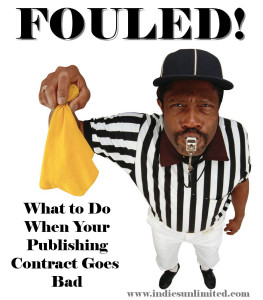 Guest Post
Guest Post
by Sophie Jonas-Hill
Suddenly, after months, or years, of feeling like you were getting nowhere, a publisher wanted me. I jumped right in when I should have asked myself – do I want them? I should have looked that gift horse in the mouth, because it turned out to be a donkey. Yes, I made the mistake of publishing with an indie publisher without doing my research first, and boy, did that go wrong for me. Here’s some simple advice I’d urge you to consider before signing up.
1) Do see what else they publish.
Often you send out a lot of submissions, and if one comes back positive, you might not quite remember which one they are. Don’t rely on memory alone, take a long hard look. A few pounds/dollars should get you a couple of their top sellers to skim through – and if you think they suck, are badly edited and full of cliche, I’d have a long think about whether you want your book to be on the same virtual shelf. On the other hand, if you enjoy reading what they’re already publishing, then you’re in good company.
2) Do get an expert to read the contract.
And a expert is not a friend of yours who promises to show the person at work who does contracts, then forgets, and just says she has and everything’s fine, because she panics when you ask her about it.
3) Set a time limit on the contract.
Five years is more than enough time for an indie publisher to have your work at their disposal, three years is better. And I would also discuss the idea of an exit clause, by which you can end the contract in a reasonable way by mutual consent. Anyone not open to even talking about this sensibly is best avoided.
4) Limit what they get.
Make sure the contract is for only one book, in one or maybe two formats (eBook and/or print). Don’t give away your right to develop the idea in another media, especially if you’re talking to a small, indie book publisher, who will have no experience with TV, theatre or film. Yes, it’s a pipe dream, but don’t stop dreaming.
5) Listen to your gut.
Please. Don’t be flattered or bowled over, if one person sees something in your work, so will another.
6) Don’t sign anything during a time of personal crisis.
Sometimes timing sucks. If you’re in the middle of darkness, this may look like a ray of light, but you’re not in a fit place to judge. If they say they won’t wait a month or two, then that’s a sign they’re not someone to deal with.
7) Speak to them over the phone and/or meet.
If they refuse to speak to you face to face or over the phone, they are a nut job and to be avoided.
8) Don’t do your own artwork.
However much you want to, the artwork they choose for your book is a good indicator of how they see your book. If it sucks, and they won’t change it, that should sound big alarm bells.
9) If they tell you your book doesn’t need editing, don’t believe them.
All books need an edit before they are published. If they don’t want to work with you to make your book the best it can be, they’re just shirking their duties. They should outline an editing schedule and who will be doing it, and let you talk to them about it all before you sign. If they seem reluctant to do so, or start saying the book doesn’t need it, run a mile.
10) Get an advance – or at least pay nothing.
A lot of indie publishers don’t offer an advance, but a percentage of sales. Personally, I prefer the advance, even if it’s only a few hundred dollars/pounds. That’s a way of recognising the author’s hard work, and is a serious commitment in you. Your commitment to them is to let them earn 60% on your sales. You can decide if you’re happy to take a contract with no advance, but I’d be very certain about all the above points first. (And make sure you never pay them anything!)
So, yes, I fell into the traps of all the above, and it is only through luck that the person concerned was a towering loony and managed to shoot himself in the foot, that I now have my book back under my control. Would I advise anyone to go with an indie publisher? Yes – indie publishing is a great way to start, especially if you write in a clearly defined genre. It can be a fantastic way to build a writing career, and with the right firm, you both can go far. In a world where it’s increasingly hard to get an agent and into the mainstream publishing game, thank God for them, because all good books deserve to be read, and they at least are prepared to take a chance. But do be warned, just like finding a lover, go with the one you can’t live without, rather than the one you can live with. We all have crazy ex-s in the past, learn from them and move on. Like me.
 Sophie Jonas-Hill is a writer, antenatal teacher and home help, who is now both older and wiser, and signed with a real agent. Learn more about Sophie on her blog, and catch up with her on Twitter at @SophieJonasHill
Sophie Jonas-Hill is a writer, antenatal teacher and home help, who is now both older and wiser, and signed with a real agent. Learn more about Sophie on her blog, and catch up with her on Twitter at @SophieJonasHill

Great list of do’s and don’ts, Sophie. Sorry you had to develop it hard way.
I’d add to #7: If the only person who will talk to you on the phone is some sort of author liaison (read: sales rep), steer clear.
Well, the hard way seems to be the way I learn most things! And yes, good point, sales reps are not editors!
Excellent points, Sophie. I don’t think we can stress enough how important it is to vet any publishing deals and not get sucked in purely on the flattery to our egos. These guys are good and they know what we want to hear. Too often, however, they’re gone in the morning and don’t even have the courtesy to leave a note. Research, research, research. Knowledge and communication are your best friends here.
Indeed yes, it’s the terrible lure of all those hours of work and loneliness finally coming to something which makes us easy prey – but knowledge is indeed power!
I can relate. Could have used you advice several years back. This is so helpful. Thank you for sharing. You are doing a great service and I hope you have come a long way since then.
If you have a look at my blog, the next stage is up there. Thanks for reading!
All good points, but legit publishers do NOT earn 60% on an author’s book. I wish! 🙂 A paperback costs the publisher a wholesale discount, printing costs, and royalties. In the end, I make less than $1 per sale which doesn’t even consider what I’ve spent on the book itself, like editing and cover art and design. Roughly half what an author earns.
Indeed yes, it’s the terrible lure of all those hours of work and loneliness finally coming to something which makes us easy prey – but knowledge is indeed power!
Sorry, that was a web error – it posted my reply from above! What I meant to say is that I was thinking more of e-book deals, where there are no printing costs, and, though I take your point about all the costs a legitimate publisher has to cover, I don’t think mine so much as read past the first page there were so many spelling mistakes (I am a dyslexic, and he was warned) – so in his case he really did do nothing for his money! Once again, it’s the bad guys that make any good guys out there look bad.
Thanks for the list, Sophie! Every author should keep it handy…
Thank you so much for sharing, Sophie, I know what it’s like to re-open the scars.
My small Press only asks for one year, and we don’t want to take an author’s movie rights or even audio book rights. That’s theirs. We work on 50% royalties for both ebook and paperbacks. We don’t work on net. It is gross. All expenses are borne by us. Personally, I am published with many small Presses and would refuse anything longer than a year. Too many Presses ask for five years. Don’t do it. I think, even if you go Indie later, that it’s a good starting point where you don’t have to pony up all the money yourself. Legitimate small Presses pay for everything. a lot of the other comments are great. Read at least the free samples the Presses have on Amazon.
Your press clearly ticks many of the boxes above, which proves my point – you have the right attitude to a difficult market, and I quite agree that small presses can be really beneficial for a writer, especially one who’s got potential or who writes for a niche the press is expert in. I would never say don’t try indie presses, I would actively encourage all inspiring writers to submit to them, but yours would clearly fall into the good guys camp, where as mine certainly didn’t.
There are many small Presses, and some really care about their authors. One must investigate and find out who the good guys are.
I had to smile at some of the items on your list, Sophie …until I twigged that they were real. Thanks for being brave and sharing. And all the best for the future!
Been there, done that (back in 2010) and have my rights back to prove it. LOL!
Great points especially getting the contract checked. 🙂
I don’t know who is there for authors in the states, but in the UK I have since discovered that the Society of Authors will review a contract for you and give their opinion for free, which is a fantastic deal. Once you’ve sold 500 copies, then you are able to join them, which I did, and they give you access to legal help and advice, a lot of which is free.